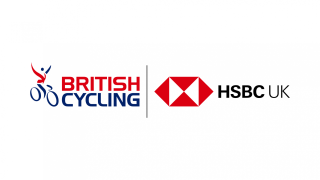On Tuesday 2 June 2020, spurred on by the actions of two black women who work in the music industry – Jamila Thomas and Brianna Agyemang – people from all walks of life came together for Blackout Tuesday in a collective protest against racism and police brutality following the death of George Floyd one week earlier by posting black squares on Facebook and Instagram.
One year on from those black squares and that landmark show of solidarity, on behalf of British Cycling I – as part of the organisation’s executive leadership team – wanted to reflect on the decision we made not to be involved, and to apologise for the disappointment which that caused for so many.
While the rightful protests of last June were a direct consequence of an abhorrent act of police brutality on the other side of the Atlantic Ocean, we know that the ensuing anger spread far wider – touching on the broader, structural causes of racial injustice, day-to-day acts of discrimination and the opportunities afforded to those from black and diverse ethnic communities worldwide.
We were – and still are – keenly aware that these are not issues which can be tackled by social media alone, but tangible action. Sadly, it is no secret that the world of cycling does not currently reflect the diverse communities we live in, so we were also mindful that our participation in Blackout Tuesday could have been interpreted as a performative, fig leaf gesture to help obscure the distinct lack of representation within our sport.
Looking back, we understand that our decision not to participate at all was a confusing one.
In the most part this decision was taken because we wanted our commitment to black cyclists to be strong and bolder. Real life doesn’t stop for our own timelines, so it was wrong for us not to acknowledge that our silence at a time when so many wanted to hear from us – and see real action – felt like a sign of indifference.
So, what action are we taking as an organisation? And what am I doing personally to make a difference?
Supported by colleagues at Inclusive Employers – experts in equality, diversity, and inclusion – we are just one month away from publishing our ambitious long-term strategy to tackle the barriers which exist at all levels of our sport and activity – encompassing ethnicity, disability and sexual orientation which will guide our work in the years to come. The support and commitment of the British Cycling Board in this incredibly important area has been second to none and I’ll be presenting this strategy to them next week.
Though we still have far to travel, as the senior lead for this work I am proud of the cultural shift British Cycling has been through in the last year, and I am equally as proud of the independent, expert Diversity and Inclusion Advisory Group recruited in recent months to ensure that we meet the ambitious targets we have set.
I am also a big believer in learning from past mistakes, and we were proud to stand alongside the football family and other sporting bodies for last month’s weekend-long social media boycott, in response to the ongoing and sustained discriminatory abuse which sportspeople and others continue to receive online.
We know that cycling has further to travel than some others on the road to becoming truly reflective of Britain’s diverse communities. Achieving that will in part depend on the services we offer and activities we provide, but more importantly it requires riders of all backgrounds to feel welcomed, represented and valued in all aspects of our sport and activity. On both counts we are committed to being better, doing more and learning from the past.





